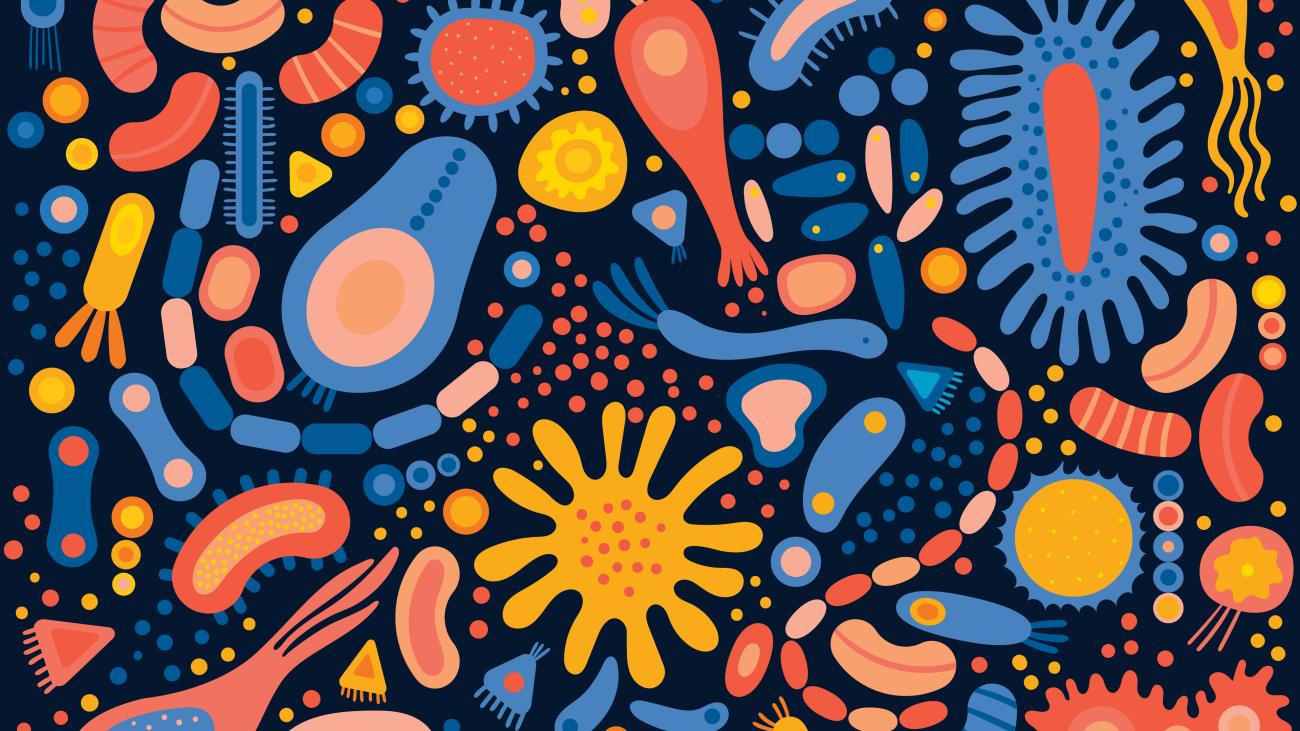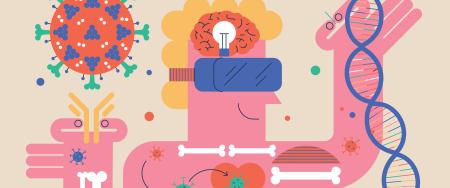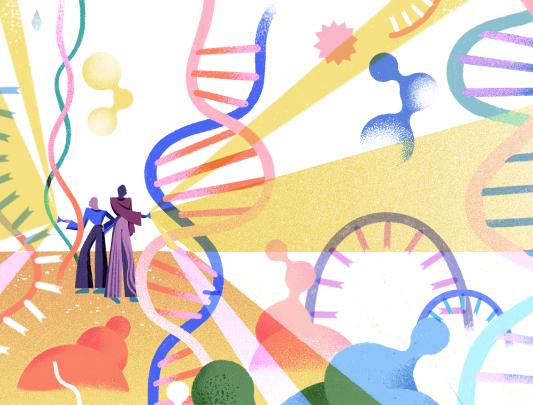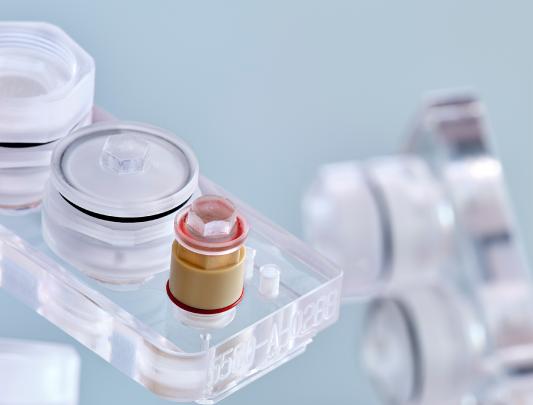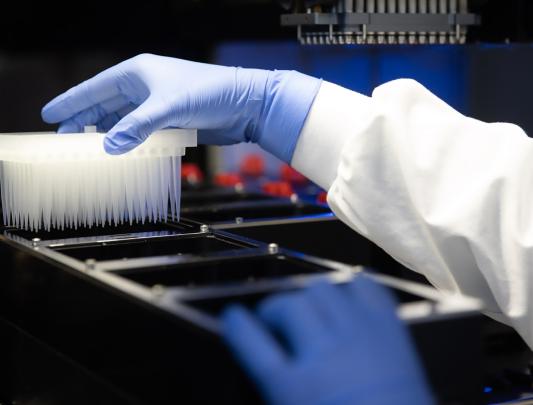Can you catch heart disease?
Dr. Brett Finlay and colleagues think that many “non-communicable” diseases — including heart disease and diabetes — may actually be transmitted through the trillions of microbes in and on the human body.
What links have been found between microbes and non-communicable diseases (NCDs)?
For over a century, since microbiologists Robert Koch and Louis Pasteur showed that microbes caused infectious diseases, our approach to prevention and treatment has been to kill pathogens through sanitation and the use of antibiotics, as well as the use of vaccines.
As a result, diseases like scarlet fever and polio are no longer the killers they once were, but this decline in infectious disease has coincided with an increase in what are classified as non-communicable diseases, such as diabetes and asthma.
It was only 10 to 15 years ago — after research into increased rates of child asthma — that we started to realize that in getting rid of all the bad microbes we had also been destroying some of the beneficial ones that we need to have in us and on us. The research proved that if children don’t get early exposure to beneficial microbes, they won’t develop normally and are at greater risk of developing asthma later on. Since then, most other prevalent Western diseases — including allergies, obesity, Alzheimer's disease and cardiovascular disease — have also been linked to a lack of beneficial microbes (or increase in detrimental ones).
The best example of a causal role for microbes, mechanistically, is cardiovascular disease. We know people can get atherosclerosis because the microbes that break down red meat use an enzyme to do so that leads to a secondary product, which causes hardening of the arteries, leading to heart disease and stroke.
The exciting part is that in animal models, if you inhibit those microbial enzymes, you can prevent cardiovascular disease — no matter how much red meat is consumed. So the determining factor is not so much cholesterol levels as the presence of certain microbes.
We have demonstrated that people with a wide range of conditions, from obesity and inflammatory bowel disease to type 2 diabetes and cardiovascular disease, have altered microbiota. Of course, there are probably genetic components to some of these diseases, but for those you can't explain based on genetics, it always comes down to the microbes.
What evidence is there that microbes transmit these diseases between people?
Animal experiments involving fecal transfer from diseased humans into healthy mice have shown that the disease phenotype is also transferred. That is pretty stunning. It’s like putting a human pathogen into an animal model and seeing it cause disease. It’s even been shown to be the case with Parkinson's, which is a brain disease.
Of course, you can’t try the same experiment with humans to see if they get sick, but the risk of inflammatory bowel disease is much higher in spouses of people with the condition than it should be, for example, because they are sharing the microbes that are involved in this disease. There was also an interesting study on an island in the South Pacific, where the researchers figured out who was married to whom just by looking at the microbes in the feces.
The Achilles’ heel of these experiments is that you can’t definitively prove the microbes are transmitted rather than independently picked up from a shared environment and lifestyle. But data shows people do exchange microbes with one another — for example, tens of millions of them with a kiss — and microbes from dogs are picked up in their owners, which can’t be accounted for by a shared diet. There are lots of smoking guns.
Does your hypothesis apply to all NCDs?
I think different diseases involve different microbial contributions. I looked closely at cancer. If microbes are involved, spouses of people with cancer should show increased incidence, but that really didn't show up, so I think cancer is a genetic change — usually a particular mutation that causes cells to proliferate. Unless the microbes are generating those mutations, they probably don't have a lot to do with it.
In light of what we’re learning, what new treatments and prevention are being developed?
I'm working with companies to develop live bio-therapeutic products, or LBPs, which are like a probiotic but targeted at specific diseases or their prevention. Most of us in the field believe that, eventually, we should be able to take mixtures of microbes and correct issues that the harmful microbes, or lack of beneficial microbes, are causing.
Most of the treatments available today involve fecal transfers. Life-threatening Clostridium difficile infections, for example — which can set in after microbes are killed off by the antibiotics used during surgery — has a 95 per cent cure rate using this method. A form of inflammatory bowel disease, ulcerative colitis, has a 40-45 per cent success rate, which is much better than any drug treatment we have. Even in autism, there are some interesting fecal transfer studies coming out.
What can we do now to lessen our chances of disease?
When COVID hit, the only way we had to deal with it was the same way we had in the past, and that's through hygiene measures. The last year has drastically changed our world from a microbial point of view, and we need to pay attention to this, because I think we will see an effect.
I can't give you a microbe pill today. But I can tell you to take the kids outside and let them play in the dirt, get a dog in the house, change to a healthier diet — all these things push microbes in a healthier direction to decrease the damage that's been done.
Each generation we get cleaner and cleaner, and living in cities means our microbes are getting less and less diverse. I'm really concerned that two or three generations from now, we’ll realize that we’ve killed off microbes that we actually need to survive as a species. There are even researchers who are bio-banking microbes from various isolated communities around the world, such as Papua New Guinea, because they have very different microbes than the rest of society.
Just realizing that microbes are intrinsically involved in the evolution of our species, and that they themselves evolve, changes how you think about diseases and what you can do to prevent them. It used to be that you eat a healthy diet because it gives you the right vitamins and nutrients. And now that book has been rewritten: you eat a healthy diet, because it makes your microbes healthier — and they then have a beneficial effect on you. It always comes down to the microbes.
























